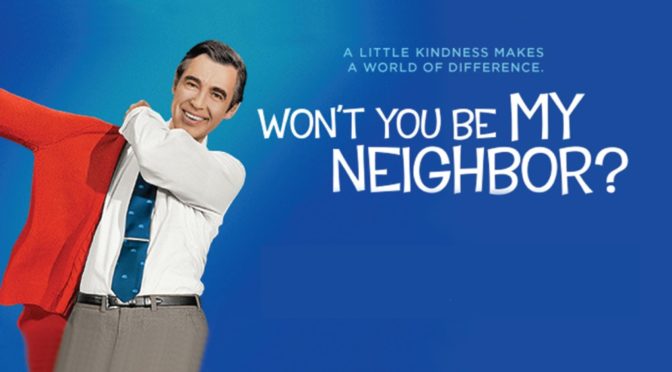In retrospect, it’s hard to understand how Mister Rogers’ Neighborhood made it into a second season, much less 31. As the film notes, it has, on paper, the makings of a complete failure. The production values are cheap and incredibly plain, the pacing is deliberate, and there are no pratfalls or easy humor. Comparing it to a film like Minions shows how it goes against everything we expect from entertainment made for children. Yet, despite this, the show not only persisted but made an indelible cultural impact on generations of viewers.
Morgan Neville, the Oscar-winning documentary filmmaker behind 20 Feet from Stardom, wisely focuses on this impact rather the man himself. This isn’t a traditional biopic. It does include background on Rogers’ early life and his family, but Neville is more interested in the ideas behind the show. He covers how Rogers had clear goals with his content. He wanted to help children grow and deal with the issues they may be facing, to an almost radical degree. The film pulls footage from the earliest episodes in the late 60s and early 70s where he explicitly talks about topics ranging from assassination to Watergate – on a children’s show! It was his direct tackling of issues that allowed him to help children without ever talking down to them.

The film also addresses several common questions related to Mr. Rogers. The most common of which is of course: “Is he really like that?” The answer is an unequivocal yes. Neville does his research and includes interviews from Rogers’ wife, children, and collaborators on the show all of whom attest that he was indeed the man he appeared to be on screen. The film disproves several ludicrous rumors about Rogers’ background, but also examines why these rumors even existed in the first place. The sad truth is that the questions about his background come from a place of disbelief. How can someone really be that kind? It’s a shame that our first instinct is to doubt someone rather than celebrate their virtues and Neville points out how Rogers’ consistent behavior and beliefs caused many, especially those closest to him, to reevaluate their lives.
Ultimately, the message behind Fred Rogers’ show can be found in the film’s original title. It was initially called It’s You I Like after a song frequently performed on the series. Neville shows that Rogers wanted children to believe in their own value and feel loved, regardless of where they came from, and used his show as an entryway into their homes. Through countless interviews and fan interactions, Neville reiterates how this message of self-worth changed the lives of so many. Children heard his words as if being spoken directly to them. In some of the film’s many emotional moments, adults who grew up with the show thank Rogers’ for the influence he had on their lives and his profound effect becomes apparent.
At the end of my screening, the director shared the one requirement given to him by Rogers’ widow, “Don’t make him a saint”. Neville carefully avoids this trap because it would lessen Rogers’ impact. Saints and their actions are beyond the realm of regular humans and portraying Rogers as such would have absolved us of our own responsibility. Instead, Neville aims and succeeds in showing that the legacy Rogers left behind and the central emotion behind his life’s work is one we all can and should strive for: true, human compassion for all those around us.

5/5 stars.
